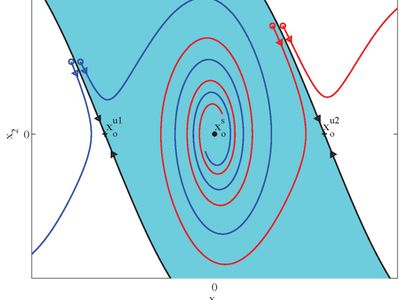This course covers power system stability and control. In the course, different mathematical models are presented to describe power system dynamics and to analyse power system instabilities. Furthermore, different control algorithms are presented and implemented to improve power system stability.
EG2110 Power System Stability and Control 7.5 credits

This course deals with advanced methods for analysis of power system dynamic, stability and control. Different power system instabilities will be presented and discussed. Furthermore, different control algorithms for improving power system stability will be presented.
Information per course offering
Choose semester and course offering to see current information and more about the course, such as course syllabus, study period, and application information.
Information for Spring 2026 Start 13 Jan 2026 programme students
- Course location
KTH Campus
- Duration
- 13 Jan 2026 - 13 Mar 2026
- Periods
Spring 2026: P3 (7.5 hp)
- Pace of study
50%
- Application code
60870
- Form of study
Normal Daytime
- Language of instruction
English
- Course memo
- Course memo is not published
- Number of places
Min: 5
- Target group
- Open for all master programmes as long as it can be included in your programme.
- Planned modular schedule
- [object Object]
- Schedule
Contact
Course syllabus as PDF
Please note: all information from the Course syllabus is available on this page in an accessible format.
Course syllabus EG2110 (Spring 2022–)Content and learning outcomes
Course contents
Intended learning outcomes
After passing the course, the student shall be able to
1. create mathematical models to describe power system dynamics
2. based on the derived mathematical models, apply different basic methods to
a) study and analyse power system instabilities
b) improve power system stability based on basic control algorithms,
c) describe and analyse effect of integration of renewable energy on power system dynamics and stability
3. numerically carry out the second intended learning outcomes by using Matlab, and present and discuss obtained numerical results.
Literature and preparations
Specific prerequisites
- Knowledge in analysis of electric power system, 6 higher education credits, equivalent to completed course EG2100.
- Knowledge in automatic control, 6 higher education credits, equivalent completed course EL1000/EL1110.
- Knowledge in numerical methods and basic programming, 9 higher education credits, equivalent completed course SF1519.
Literature
Examination and completion
Grading scale
Examination
- PROJ - Project, 7.5 credits, grading scale: A, B, C, D, E, FX, F
Based on recommendation from KTH’s coordinator for disabilities, the examiner will decide how to adapt an examination for students with documented disability.
The examiner may apply another examination format when re-examining individual students.
If the course is discontinued, students may request to be examined during the following two academic years.
Examiner
Ethical approach
- All members of a group are responsible for the group's work.
- In any assessment, every student shall honestly disclose any help received and sources used.
- In an oral assessment, every student shall be able to present and answer questions about the entire assignment and solution.
Further information
Course room in Canvas
Offered by
Main field of study
Education cycle
Supplementary information
In this course, the EECS code of honor applies, see: http://www.kth.se/eThen/eecs/utbildning/hederskodex.